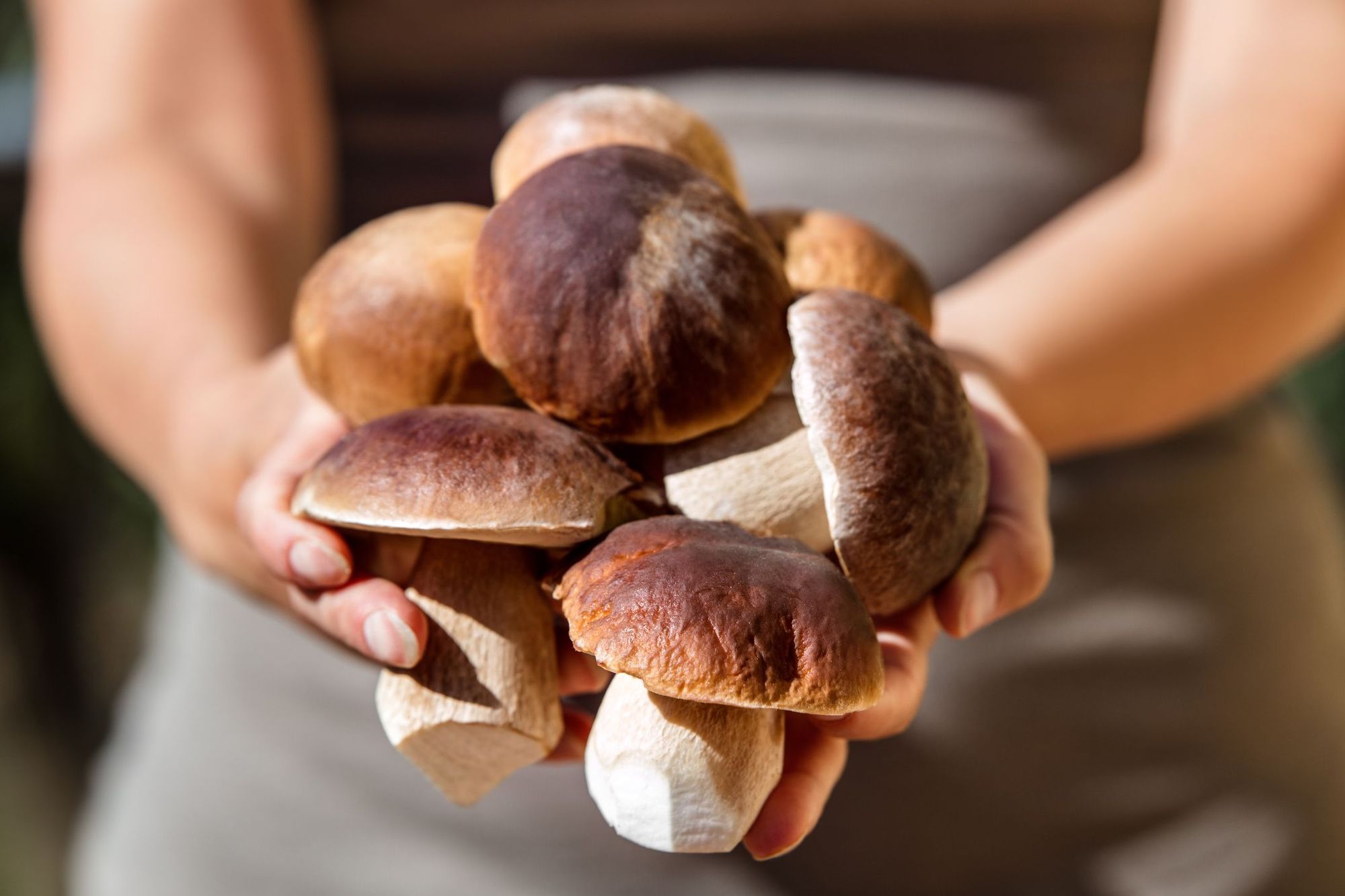My call to Filaretos Psimmenos interrupts his morning sausage-making. It’s an Italian recipe, but he’s adding a Greek touch with some fresh oregano. His wife, Marianna, is making a pie with cherries from their garden.
“It’s for tomorrow’s breakfast," he explains. "We change the main course and the sweet every day."
The couple run Amanita Guesthouse, a farm-to-table guesthouse on Greece’s Pelion Peninsula, which doubles up as an adventure base for those heading out to kayak the turquoise waters of the Pelion Peninsula. It’s a big departure from their previous careers and urban lifestyle in Athens, where Marianna was a lawyer and Filaretos a marketing specialist.
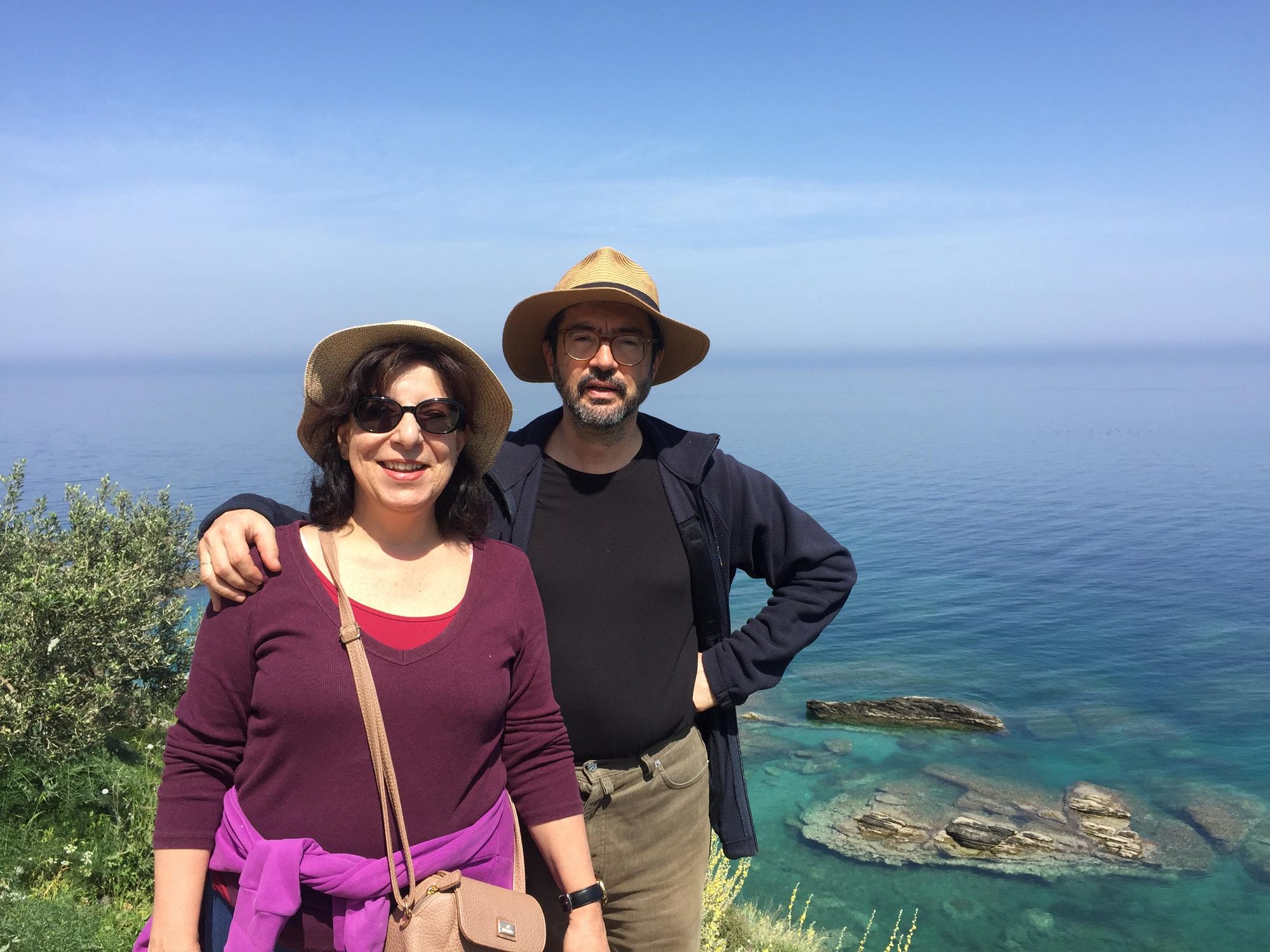
“We used to have anxieties about the boss, the clients, and all that. Now we have different anxieties - the weather, the blind mouse who digs under the plants,” Filateros says (referring to a mole).
From Marketing to Mushroom Foraging
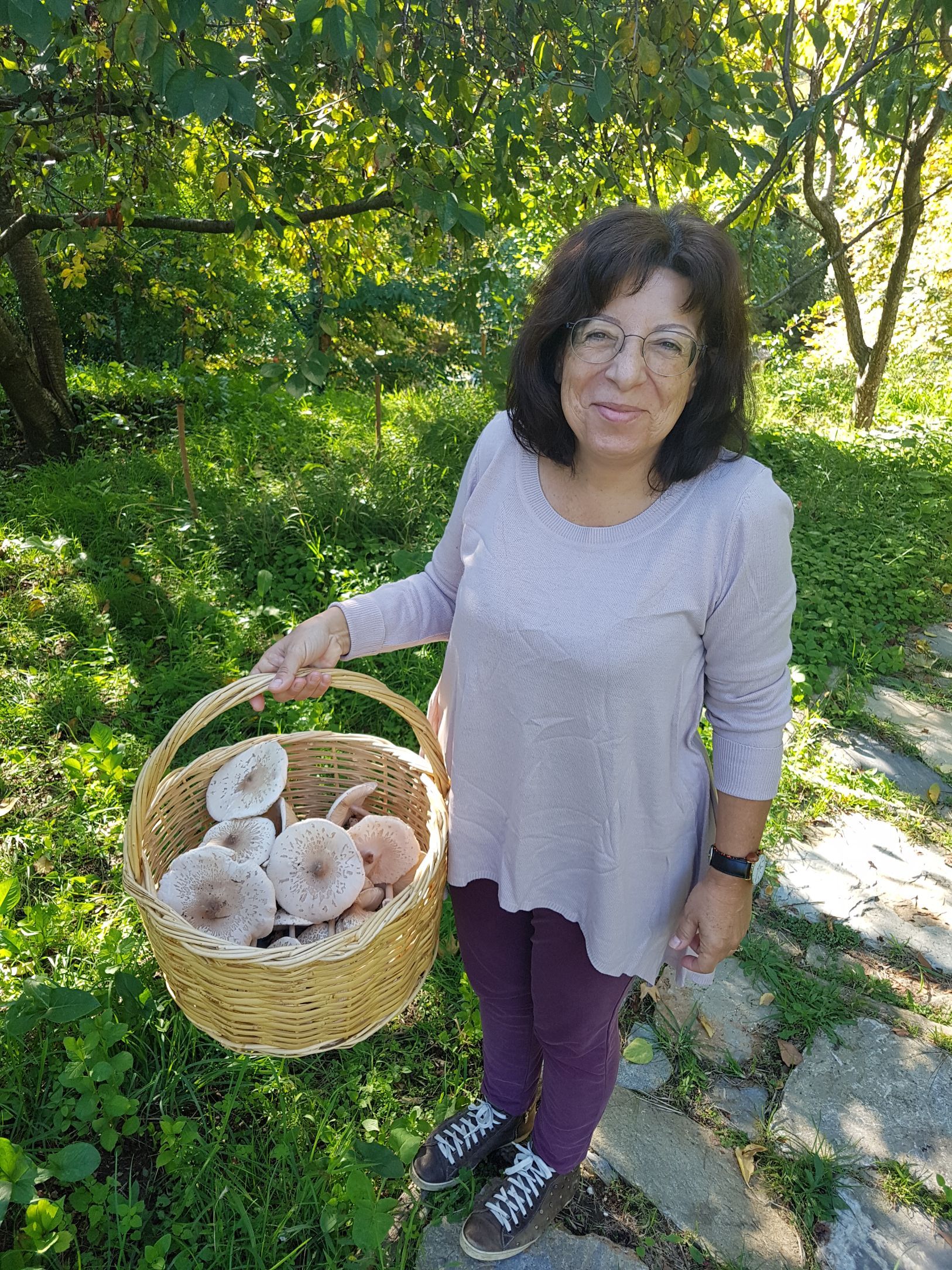
Earlier in their relationship, the couple frequently visited Pelion - a hook-shaped peninsula in between Athens and Thessaloniki - on their holidays. In 1992, they purchased land there. There was a nebulous plan to build a vacation home on it, but life got in the way.
“In 2002, Filaretos had the feeling that something was wrong in the Greek market,” Marianna says. “He said, ‘these salaries are huge and the money that we see circulating is too big for a market that has no depth. Something is going to happen - we have to move. I don't want to stay in this profession any longer.’ So we started planning.”
The couple applied for EU funding to renovate the ruined houses on their property. During the construction process, the builders took Filaretos into the forest to show him the mushrooms that grew there, and he quickly became fascinated with identifying them. Some of the tastier species in the area include parasol mushrooms, black porcini and Caesar’s mushrooms (Amanita Caesarea), which gave the guesthouse its name.
“I’ve loved foraging since childhood. In Greece, the foraging knowledge is still vivid. My mother and my aunts always had a little knife and a bag. They collected herbs and wild greens. We use a lot of foraged foods in our cuisine. But I didn’t have much knowledge of mushrooms,” Filaretos reminisces.
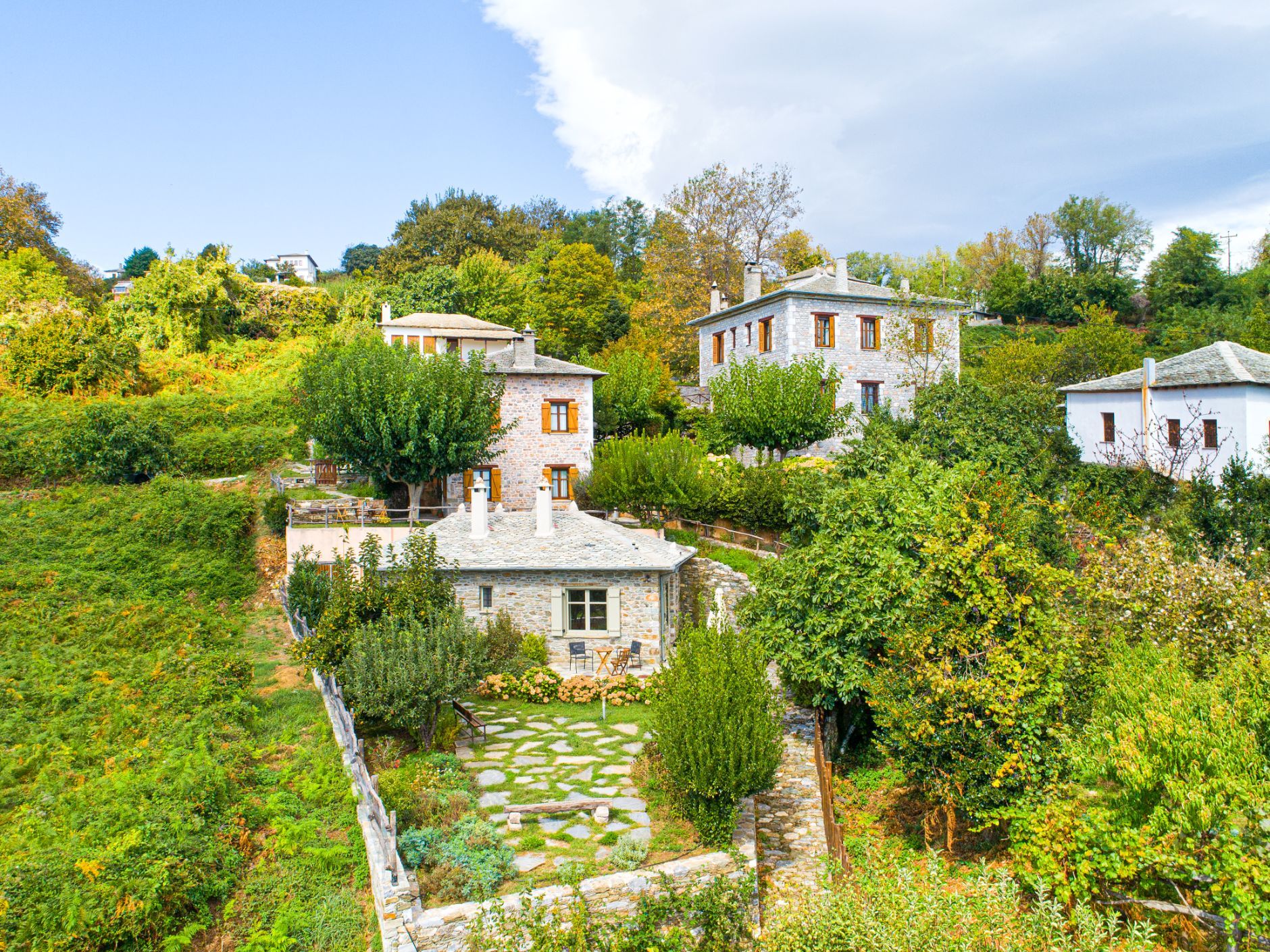
By 2006, renovations were complete. Filaretos and Marianna kept their jobs in the city and opened their guesthouse up on weekends and over the summer. They also ran mushroom hunting and foraging tours, sharing their newfound knowledge with others.
“Back then, foraging for mushrooms wasn't very popular in Greece. We were the first people to run it as an activity. After that, there were clubs and activity groups everywhere,” Marianna adds.
From Foraging to Farming
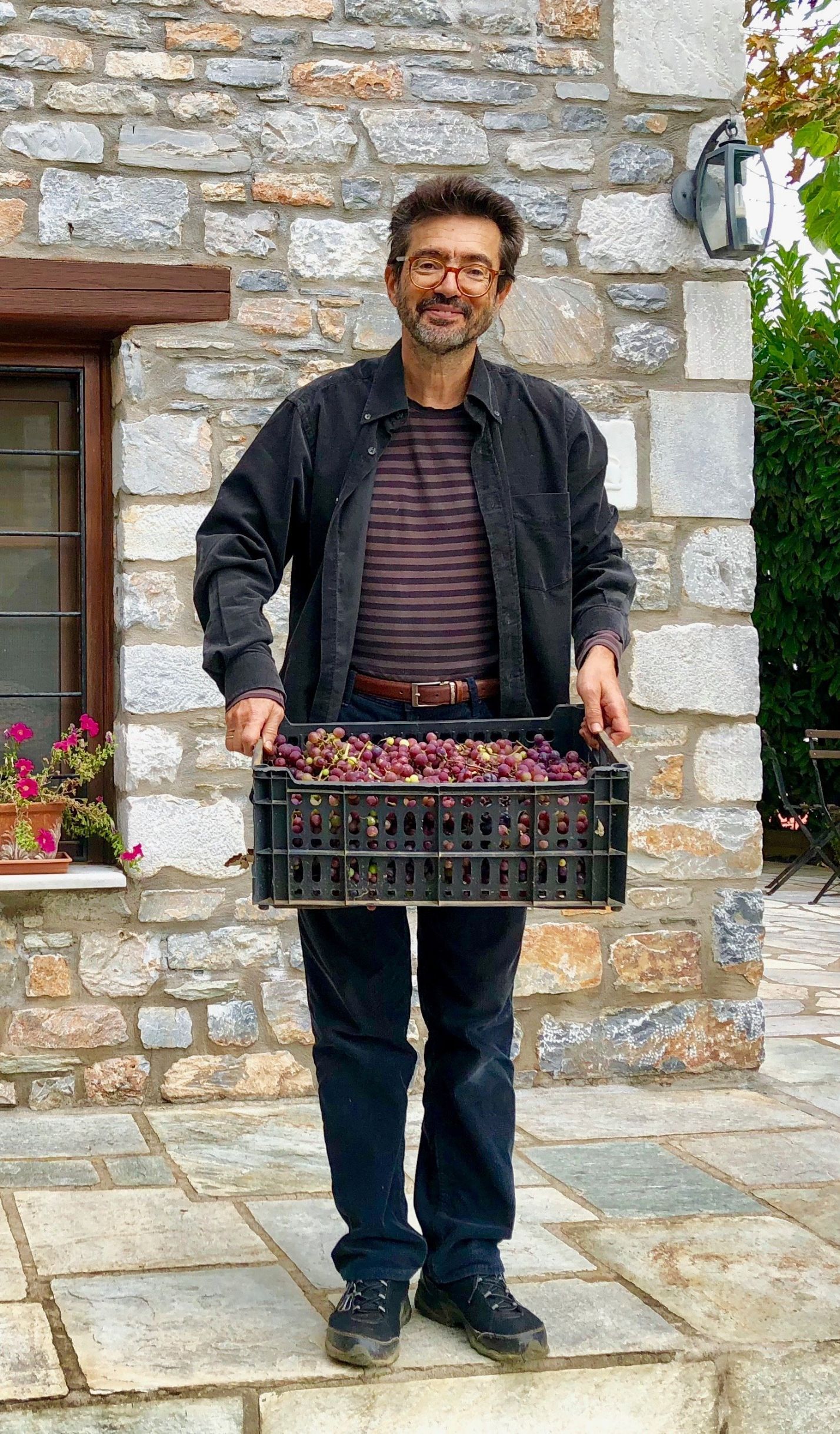
While the guesthouse quickly became popular, it was threatened by forces beyond their control. The Greek debt crisis and subsequent austerity measures meant that many people no longer had the disposable income to afford weekend breaks; attracting foreign tourists became paramount.
“We changed the concept. We changed our lives. We began staying here for longer. And we started the garden, because we had time. Before that we lived like people 10,000 years ago. It was like history - moving from the foraging period to the cultivation period,” Filaretos says.
“It was not easy - perhaps it was the wrong decision,” Marianna says, only half-joking. “You have to be very devoted. When you are foraging, you are free; you go if you like, and when the food is finished.
“With gardening, you can't do that. However, the surroundings are now very beautiful; the garden is thriving. We have butterflies. They were almost extinct here and now in our garden they are everywhere.”

Filaretos and Marianna went to agricultural college to learn about herbal and medicinal plants, which now grow in abundance on their property. They’ve started keeping bees, and guests are served their honey for breakfast, alongside homemade preserves, home grown vegetables and other locally sourced produce.
“Filaretos is working on a project called the Gastronomic Community of Pelion, which makes connections between the tourism sector, the guesthouses and hotels, and the producers. It is very important - it creates bonds between people who work in these very tough professions,” Marianna says.
Sourdough is the New Luxury

Despite jokey references to hunter gatherer culture, Filaretos and Marianna are not entrenched in the past.
“We try to be in the middle of the new and the old. We are not stuck in ideology; we are not fanatics. Fanaticism makes you blind. That means we use old seeds, but we also use new seeds. We use old techniques but we also use new techniques. We try to use the good things from both,” Filaretos says.
At the moment, it’s the future that concerns them both.
“I am shocked about how fast climate change is visible. Even in this very beautiful and protected area of the world,” Marianna says.
“We have a responsibility to our children to cultivate organically, because that is the future,” Filaretos says. “It’s awful to imagine what the world could be like if two or three companies ran everything - the fruits, the seeds, the medicines. It's a dystopia, like bad science fiction.”
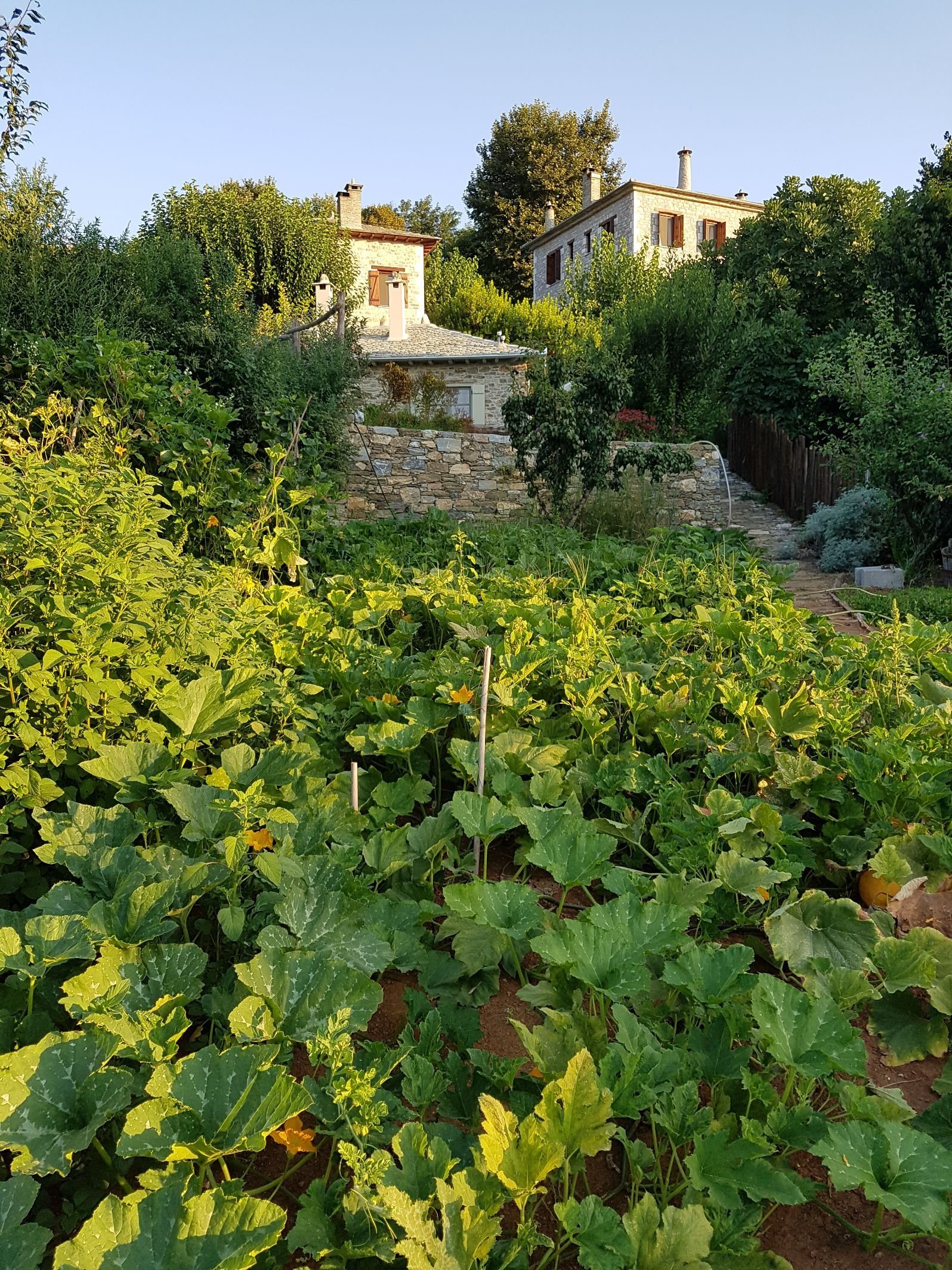
“That's why we try to live in a different way, to be successful in a different way, because there is a paradigm shift; this is all we can offer right now,” Marianna says.
Wealth, to Filaretos and Marianna, is not something that can be measured in cold hard cash. Instead, it can be measured by the amount of time spent doing what you want, and being close to nature. And food isn’t just fuel - it’s a way to connect with your environment, and each other.
“I believe the new luxury is the bread that you make with sourdough, and not the jacuzzi. I wrote this six years ago, in an article, and people laughed, because they believed luxury was Santorini, jacuzzis, and infinity pools,” Filaretos says.
We doubt they’re laughing any longer. As the world changes rapidly around us, more and more people are being inspired to leave their jobs and find some land to call their own.
Feeling inspired? Check out our adventures in Greece, taking you to its most unspoilt corners.


